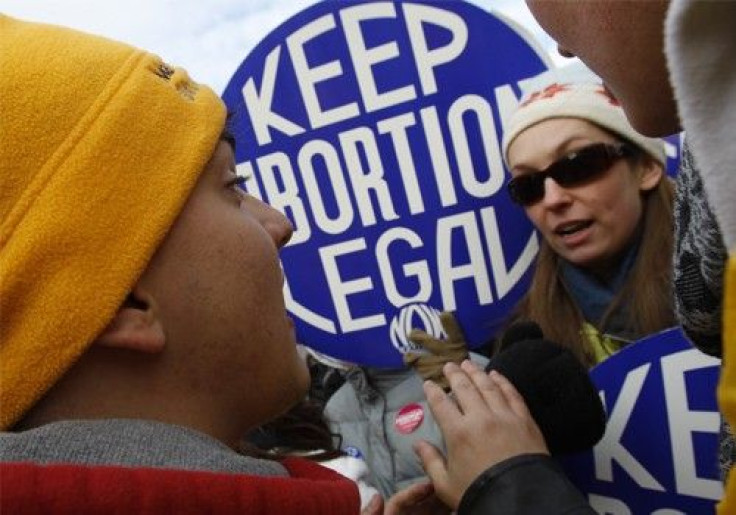Abortion: House to Vote on GOP's Controversial 'Protect Life Act' Thursday

The U.S. House of Representatives is scheduled to vote today on a bill the GOP claims will close loopholes that allows the Affordable Care Act to be used to provide federal funding for abortions.
House Majority Leader Eric Cantor, R-Va., said the House would consider the legislation, known as the Protect Life Act, on Thursday. The bill was sponsored by Rep. Joe Pitts, R-Pa., and seeks to make it illegal for federal funds to be used to cover any part of the cost of a health insurance plan that includes abortion coverage. It is a considerable change from the current law, which prohibits federal funding for abortions but otherwise allows that money to be used to cover health care costs unrelated to the procedure.
The bill, which has 145 co-sponsors, allows for an exemption to the rule in cases of rape or incest, or when a mother's life is in danger.
In addition, the legislation requires companies that offer health insurance plans covering abortion services through a health insurance exchange to offer identical versions of the plan that do not cover abortion. Moreover, it would prevent governments at all levels from discriminating against health care facilities that refuse to perform abortions.
Maintains Hyde Amendment or Restricts Abortions?
The ability granted to hospitals to refuse abortion services has been criticized by the bill's opponents, who have dubbed it the Let Women Die act. Hospitals that receive federal funds but are opposed to abortions -- such as the approximately 600 hospitals in the U.S. affiliated with the Catholic Church -- would be allowed to turn away women seeking abortions in all circumstances, even if it is medically necessary to save her life.
When questioned about the provision when the bill was introduced in February, a spokesperson for Pitts told Talking Points Memo that it simply reinforces hospitals' already-existing right to refuse treatment to women requiring a medically-necessary abortion.
The Protect Life Act simply extends these provisions to the new law by inserting a provision that mirrors Hyde-Weldon. In other words, this bill is only preserving the same rights that medical professionals have had for decades, Pitts' spokesperson said.
The Hyde-Weldon amendment is not a permanent law, but rather a rider that has been routinely attached to appropriations bills since 1976. It only applies to funding allocated by the annual appropriations bill for the Department of Health and Human Services and primarily affects Medicaid.
Some worry that the legality of allowing religious figures, who set the moral guidelines at religiously-affiliated hospitals, to determine medical policy for institutions given federal money to provide health services for all citizens, no matter their faith.
Unfortunately in the Catholic system, someone who's a bishop, who has no medical qualifications whatsoever, can dictate what a hospital does, Jon O'Brien, the president of Catholics for Choice, told The Huffington Post.
O'Brien said bishops are absolutely obsessed with sexual and reproductive health, especially on the issue of abortion and so the Catholic Church is a huge supporter of the legislation.
Opponents to the Protect Life Act also worry that its move to deny all federal funding to any health plan that includes abortion coverage may be devastating for low-income women who cannot afford to pay for those services out-of-pocket. It could potentially lead to an increase of unplanned pregnancies and births among individuals who are not in economic position to support a child.
This is not the first bill carrying a pro-life stamp that opponents argue is indicative of the Let Women Die nickname. Earlier this year, U.S. Rep. Virginia Foxx, R-N.C. proposed amending the Affordable Care Act to include a measure that would have rescinded funding for graduate medical education and teaching health centers that teach physicians how to perform life-saving abortion procedures that are often necessary when women have incomplete miscarriages.
The bill is expected to easily pass the U.S. House, but probably will not gt a vote in the U.S Senate, where Democrats are in the majority, politico.com reported Wednesday.
© Copyright IBTimes 2024. All rights reserved.











